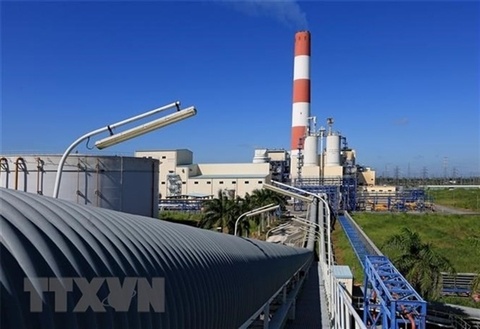Equitisation and divestment move slowly
 |
| The process of equitisation and divestment of State capital is still moving at a very slow pace. - VNA/VNS Photo |
Tien said just three enterprises, under Viet Nam Northern Food Corp. and Viet Nam National Coal and Mineral Industries Group, were successfully equitised in 2021. Notably, these three were not on the list of enterprises under equitisation approved by the Prime Minister.
Meanwhile, 89 enterprises have not yet finished equitising as planned, of which 13 are large-scale enterprises located in Ha Noi and 38 in HCM City.
Regarding divestment, the director revealed that State capital withdrawal took place in 18 enterprises last year at a total book value of VND1,665 billion (US$73 million), raking in VND4,402 billion ($193.1 million).
Such an amount pales in comparison with the amount of divested capital during 2016-2020, which stood at VND27.3 trillion ($1.2 billion) in book value, fetching up to VND177.4 trillion ($7.8 billion).
It is also worth noting that revenues added to the State Budget by Enterprise Arrangement and Development Support Fund fell far short of the annual target of VND40 trillion in 2021, staying at just VND1,401 billion (3.5 per cent).
Equitisation and divestment of State capital are implemented at a very slow pace, to the detriment of the State Budget
According to Tien, the reduction of State ownership requires the sale of State enterprises on financial markets. As the pandemic has negatively affected the functionality of these markets, it slows down capital sales, creating a setback to State capital withdrawal.
The director also stressed that the pace of equitisation was enterprise-specific. It takes more time for large enterprises which own plenty of real estate to have their assets evaluated and their equity transferred. Thus, these enterprises equitise at a slower pace.
But that’s just a part of the picture.
Some representatives of State-owned capital in enterprises are unwilling to press on with the plan and make half-hearted attempts at equitisation and divestment. As a result, State capital withdrawal did not work out as well as planned, Tien said.
On top of that, several enterprises have done preparatory work so badly that they were ill-prepared for equitisation. Notably, many ended up having inadequate land-related legal documents for equity transfer and had to redo the work, adding more time to the process.
The director also noted the weak cooperation between representatives of State-owned capital and government agencies in handling public assets as another cause of the slow-paced capital withdrawal.
To push past these setbacks and finish as planned, the government is advised to be stricter with representatives, pushing them to step up equitisation and divestment.
Tien also urged the government to approve the plan on State-owned enterprise restructuring with a focus on State-owned economic groups and corporations for 2021-2025 and the plan on enterprise rearrangement for the same period.
These two documents, when approved, will act as guidance for enterprises on equisation and divestment.
Representatives of State-owned capital are also called on to strictly comply with regulations on real estate that belongs to the State, and quickly clear all backlogs to put enterprise restructuring on track.
“Representatives of State-owned capital in enterprises and local authorities should work together to handle real estate at a faster pace, notably in Ha Noi and HCM City,” Tien said.
What the stars mean:
★ Poor ★ ★ Promising ★★★ Good ★★★★ Very good ★★★★★ Exceptional
Related Contents
Latest News
More News
- Banking sector targets double-digit growth (February 23, 2026 | 09:00)
- Private capital funds as cornerstone of IFC plans (February 20, 2026 | 14:38)
- Priorities for building credibility and momentum within Vietnamese IFCs (February 20, 2026 | 14:29)
- How Hong Kong can bridge critical financial centre gaps (February 20, 2026 | 14:22)
- All global experiences useful for Vietnam’s international financial hub (February 20, 2026 | 14:16)
- Raised ties reaffirm strategic trust (February 20, 2026 | 14:06)
- Sustained growth can translate into income gains (February 19, 2026 | 18:55)
- The vision to maintain a stable monetary policy (February 19, 2026 | 08:50)
- Banking sector faces data governance hurdles in AI transition (February 19, 2026 | 08:00)
- AI leading to shift in banking roles (February 18, 2026 | 19:54)

 Tag:
Tag:




















 Mobile Version
Mobile Version